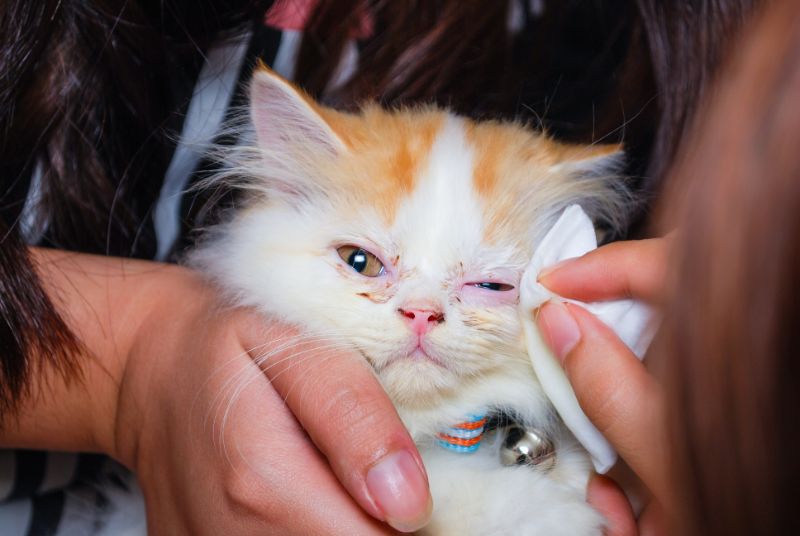
Whether they’re suffering from an illness or injury, cats instinctively hide symptoms. Hardwired to appear strong and stealthy at all times, cats know they may be easily targeted by predators if seen as weak.
Of course, indoor-only cats may not experience a specific risk from predators, but they’ll still hide under the bed or in the darkest corners of the closet when they’re not at their best. When cat owners are carefully tuned into the signs that their cat is sick, they not only ensure immediate help but may also prevent long-term complications.
In This Together
Even the most attentive cat owners may not pick up on all the various subtleties of feline communication. Often, by the time signs of an illness or injury are noticed a cat’s problem may be quite severe. Keeping tabs on what’s normal for them goes a long way toward observing that something’s gone awry.
Hyper-Vigilant
Since they do isolate themselves when ill or injured, cat owners can take this as the first indicator that they may need immediate veterinary intervention.
Additionally, a cat is sick if the following symptoms are present:
- Vomiting
- Diarrhea (with or without blood) or constipation
- Changes in litter box habits
- Blood in the urine
- Sudden weight gain or unexplained weight loss
- Increased thirst
- Labored breathing
- Uncharacteristic discharge from the eyes or nose
- Hair loss or skin irritation
One of the most obvious shifts that occur when a cat is sick concerns their personality. A normally social and engaged cat that begins to withdraw may be dealing with pain or discomfort. Alternatively, a cat that prefers their own company may start to cling to their owners.
When Your Cat Is Sick
Certain symptoms that clue you into the fact that your cat is sick can be explained by common feline conditions, such as:
- Diabetes
- Thyroid issues
- Cushing’s disease
- Cancer
- Kidney or liver disease
- Urinary tract disease
- Asthma
- Heart failure
Because many of the above can be effectively treated before symptoms get out of control, early diagnosis is critical.
Know When to Go
Sometimes you can simply observe signs that your cat is sick, and wait to see if they’ll improve over the course of a couple days. However, none of these symptoms should ever be delayed or ignored:
- Painful touches (accompanied b loud crying)
- Seizures
- Difficulty breathing
- Bleeding
- Discolored gums
- Vomiting blood
- Exposure to poisons
- Loss of consciousness
- Unable to walk
- High or low body temperature
These are signs of a cat emergency. Please call us immediately so we may give you more information, and prepare for your arrival.
On the Path
Staying on top of your cat’s vaccinations and parasite prevention medication can prevent a variety of life-threatening diseases or infections. Maintaining their preventive health can have a lasting impact, and our staff is here to help your cat stay on the right path.
If you have any questions or concerns that your cat is sick, please do not hesitate to contact the team at Clairmont Animal Hospital.

